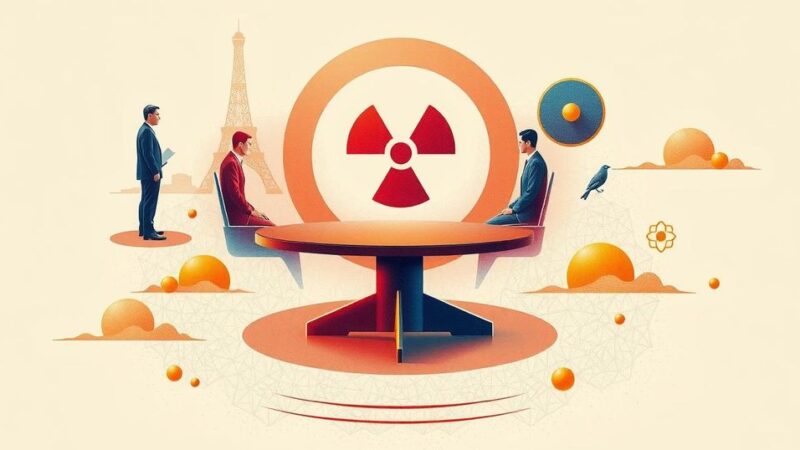Ahmad Baydoun, a Lebanese researcher, is documenting the use of white phosphorus by Israeli forces in Lebanon, focusing on its devastating impacts on health and the environment. His research employs innovative geolocation and satellite technology to advocate for accountability amid increasing military violence and ecological destruction. Despite international law prohibiting its use in civilian areas, the ongoing conflict has resulted in serious public health and environmental crises.
Ahmad Baydoun, a Lebanese researcher pursuing a PhD in weaponized environments, has shifted his focus from academic theory to real-time assessments of environmental devastation caused by military actions in Lebanon. His research has become increasingly pressing amid allegations that Israeli forces have utilized white phosphorus munitions in populated areas, resulting in significant harm to public health and the environment. Baydoun employs geolocated visual data to document these occurrences, emphasizing the need for accountability and awareness of the ongoing crisis. White phosphorus is an incendiary substance employed in military operations, primarily to obscure troop movements; however, its use is strictly regulated under international law, especially near civilian populations. The impact of this substance is profound, causing severe burns, respiratory issues, and long-term ecological damage. Reports indicate that approximately 117 incendiary bombs have been launched into southern Lebanon since October 2023, igniting fires that have devastated vast areas of farmland and forests. Baydoun has capitalized on modern technology to monitor these incidents, utilizing satellite imagery and social media, which allows him to create accurate maps of white phosphorus attacks, especially in inaccessible regions of conflict. He collaborates with Lebanese journalist-activists to gather localized data, as traditional reporting channels have become increasingly dangerous. By employing strategies such as geolocation and chronolocation, Baydoun aims to provide precise documentation of the military’s actions to the international community. In addition to the immediate health risks posed by white phosphorus, Baydoun highlights the broader implications of soil and water contamination, which threatens agricultural productivity and food security in Lebanon. This situation jeopardizes not only the local economy but also the ecological health of the region, as toxins may spread beyond Lebanon’s borders. Despite the severity of the situation, the international response has been tepid. Prominent human rights organizations have criticized the use of white phosphorus, yet governmental reactions remain subdued. As Baydoun continues his research, it serves dual purposes: to document the suffering in Lebanon while advocating for greater accountability and response to environmental violence. His dedication is further fueled by personal stakes, as he seeks to protect his homeland amid ongoing turmoil. In summary, the research conducted by Ahmad Baydoun not only sheds light on the troubling use of hazardous munitions but also emphasizes the urgent need for international intervention and accountability as Lebanon grapples with both humanitarian and environmental crises.
The ongoing conflict in the region has led to grave concerns regarding the use of military-grade munitions, particularly white phosphorus, which is known for its incendiary properties and potential to cause significant harm to civilian populations. As tensions escalate, the environmental and public health implications of such military actions have garnered increased scrutiny, particularly given Lebanon’s already precarious socio-economic state. The intersection of environmental science and human rights advocacy presents a critical framework for addressing these urgent issues.
Ahmad Baydoun’s work stands as a vital testament to the need for thorough documentation and international accountability regarding the use of white phosphorus in Lebanon. The repercussions of this warfare extend beyond immediate casualties, threatening ecological health and food security. As Baydoun’s research highlights the human and environmental costs of military conduct, it underscores the critical importance of recognizing and addressing these issues on a global scale.
Original Source: www.arabnews.com






